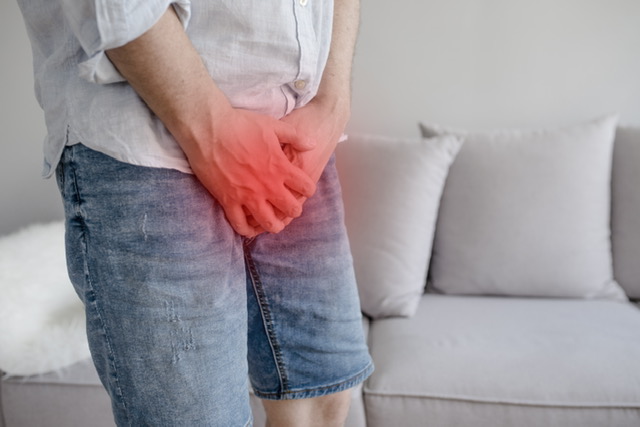
12 Aug Navigating Life After Prostatectomy: Understanding Depression, Erectile Dysfunction (ED), and Incontinence
Prostatectomy, the surgical removal of the prostate gland, is a critical treatment for prostate cancer. However, it often brings significant side effects that can profoundly impact both physical and mental health. Post-surgery depression, erectile dysfunction (ED), and urinary incontinence are common hurdles that many men encounter. Recognizing these challenges and exploring effective strategies, such as abdominal exercises and pelvic health practices, can help men navigate the post-prostatectomy journey more smoothly.
Depression After Prostatectomy
The emotional toll of prostatectomy is substantial and often underestimated. Men undergoing this procedure may experience a range of psychological challenges, including:
- Grief and Loss: The loss of normal sexual function and control over urination can lead to feelings of grief and a sense of lost masculinity.
- Anxiety and Fear: Worries about cancer recurrence, changes in body image, and the ability to resume normal activities can heighten anxiety.
- Social Isolation: Incontinence or ED can cause embarrassment, leading men to withdraw from social activities, which can worsen feelings of loneliness and depression.
Erectile Dysfunction and Incontinence: Common Post-Operative Symptoms
Erectile Dysfunction (ED)
ED is a common side effect following prostatectomy, affecting many men to some extent. The surgery can damage nerves and blood vessels essential for erections. Symptoms include:
- Difficulty Achieving or Maintaining an Erection: This primary symptom affects sexual intimacy and self-esteem.
- Decreased Libido: The stress and emotional strain of surgery and recovery can dampen sexual desire.
- Psychological Impact: The inability to engage in sexual activity can lead to feelings of inadequacy and depression.
Urinary Incontinence
Post-prostatectomy incontinence varies in severity but can significantly affect quality of life. Symptoms include:
- Stress Incontinence: Leakage of urine during physical activities, coughing, or sneezing.
- Urge Incontinence: A sudden, intense urge to urinate followed by involuntary leakage.
- Continuous Dribbling: Persistent leakage, often more severe immediately after surgery but typically improving over time.
The Role of Abdominal Exercises and Pelvic Health
Addressing ED and incontinence requires a holistic approach, including physical therapy that focuses on abdominal and pelvic health.
Pelvic Floor Exercises (Kegels)
Pelvic floor exercises can strengthen the muscles that support the bladder and control urination. These exercises can:
- Improve Bladder Control: Strengthening the pelvic floor muscles can reduce incontinence.
- Enhance Sexual Function: Improved muscle tone can contribute to better erections and sexual satisfaction.
How to Perform Kegels:
- Identify the Muscles: Locate the pelvic floor muscles by attempting to stop urination midstream, visualising ‘nuts to guts’ .
- Perform the Exercise: Practice using different fibres , slow and fast twitch to achieve the desirable effect
- Consistency is Key: Regular practice is essential for noticeable improvements.
Abdominal Exercises
Strong abdominal muscles support overall core stability and can assist in better pelvic floor function. Effective exercises include:
- Pelvic Tilts: Lie on your back with knees bent and feet flat on the floor. Tighten your abdominal muscles and gently tilt your pelvis upward, then release.
- Bridges: From the same starting position, lift your hips toward the ceiling, hold, then lower back down.
Mental Health Support After a Prostatectomy
Addressing depression after prostatectomy means tackling both physical and emotional health:
- Counseling and Therapy: Professional counseling can help men process their feelings and develop coping strategies.
- Support Groups: Connecting with others who have gone through similar experiences can provide valuable emotional support and practical advice.
- Healthy Lifestyle: Regular exercise, a balanced diet, and adequate sleep can improve overall mood and well-being.
Recovering from a prostatectomy involves addressing both physical and emotional aspects of health. Understanding the challenges of depression, ED, and incontinence and incorporating effective pelvic and abdominal exercises can help men regain control and enhance their quality of life. Seeking professional guidance and building a support network are crucial steps in this journey, ensuring that no man has to face these challenges alone.
Make an Appointment to discuss Life After a Prostatectomy
To make an appointment to discuss a plan with our experienced physio team, contact our clinic on 9749 5110 or book an appointment online today.
